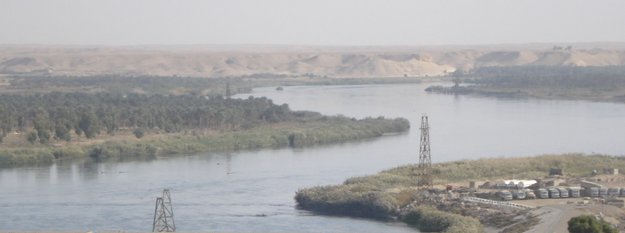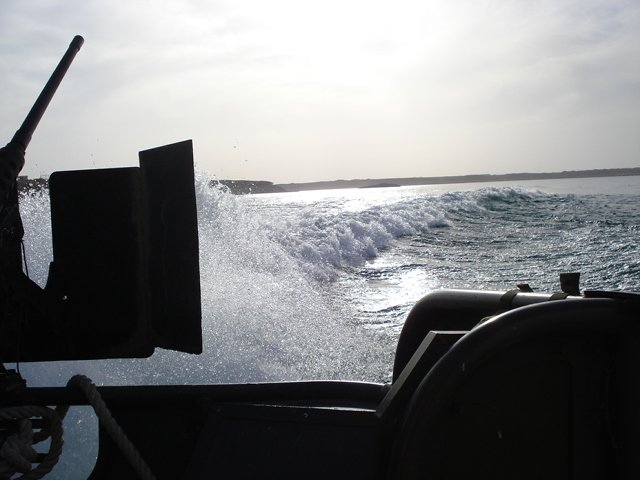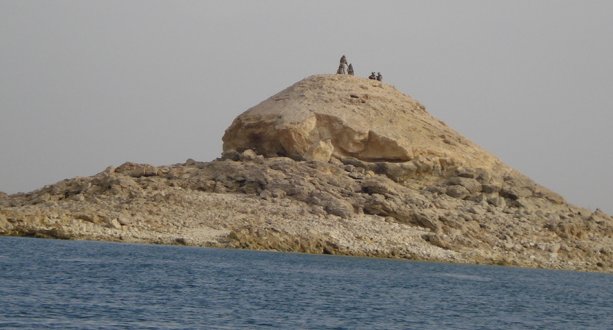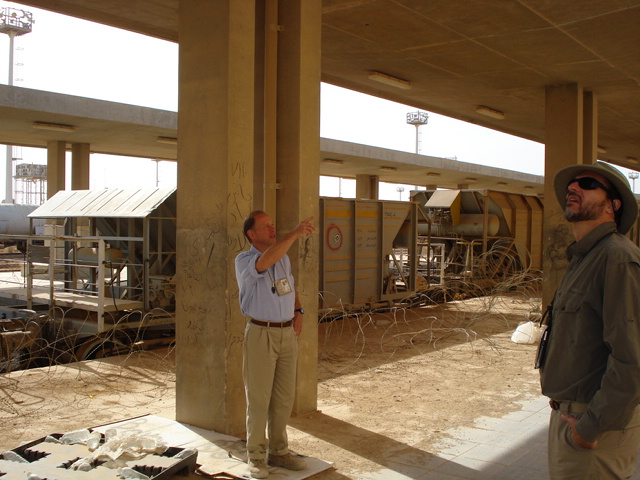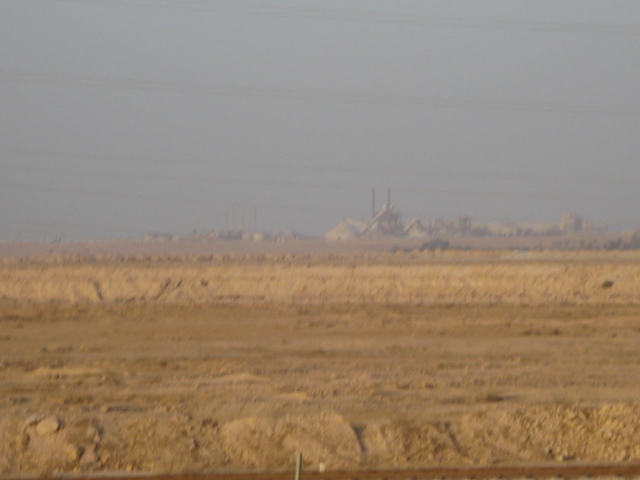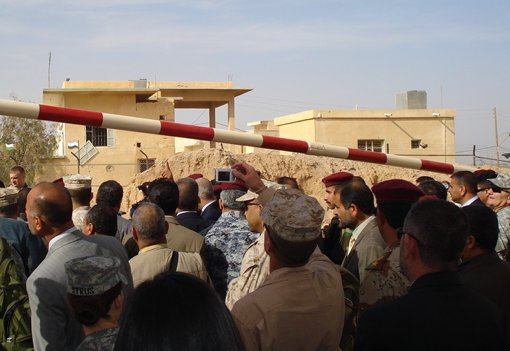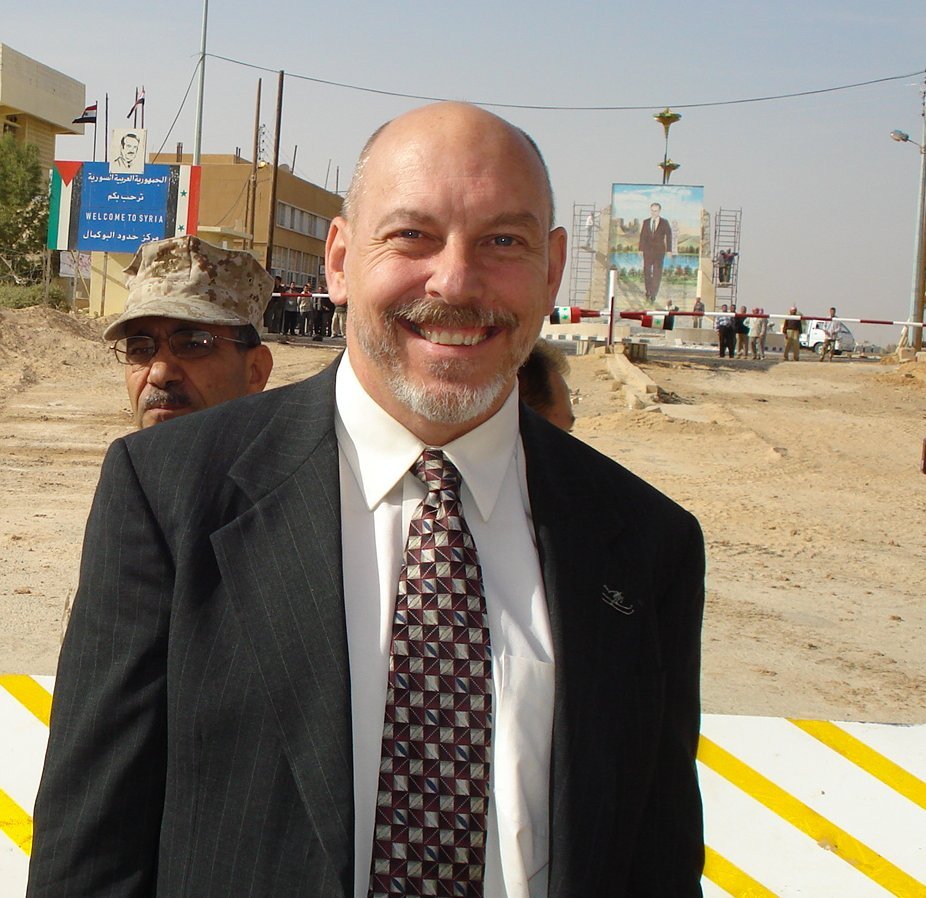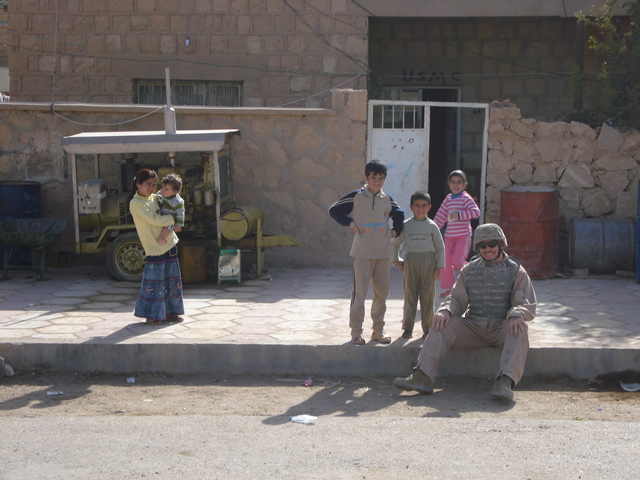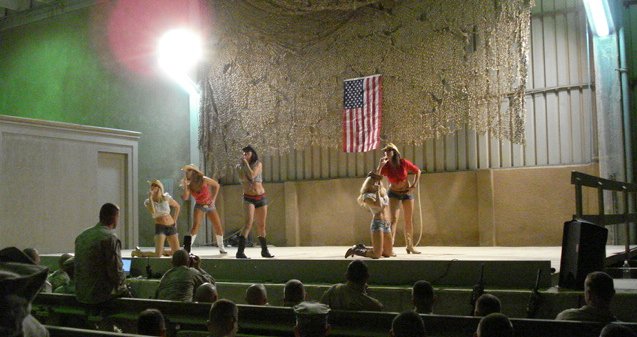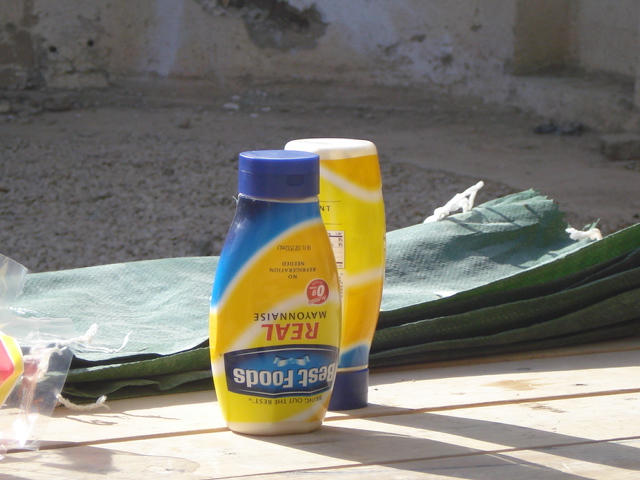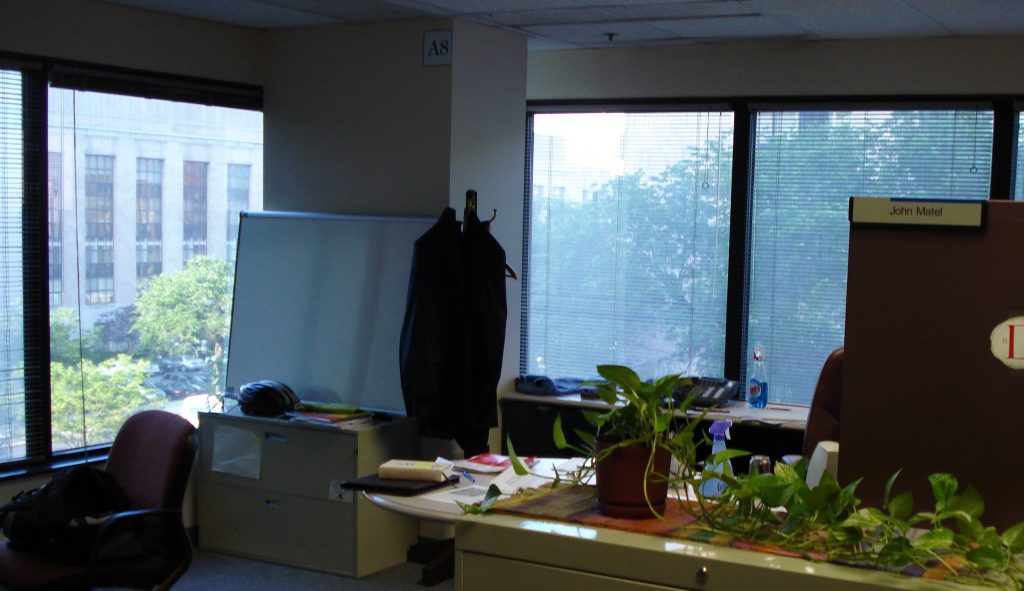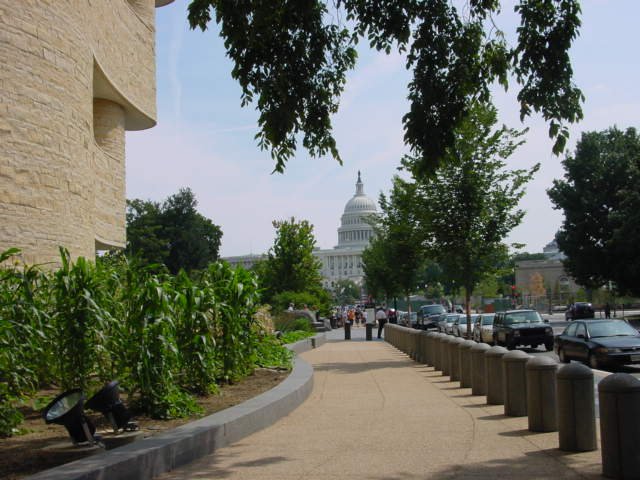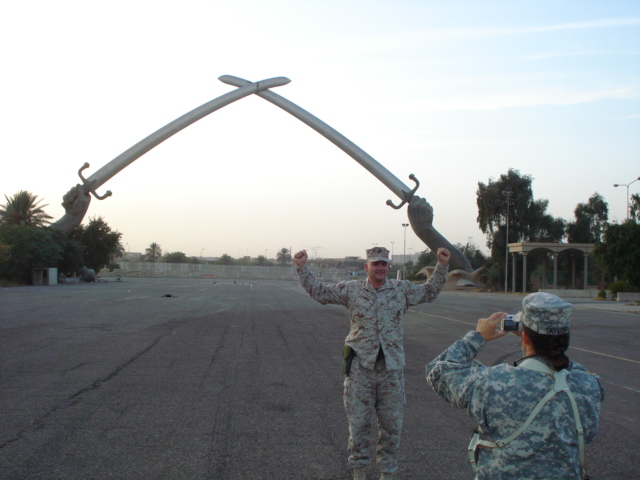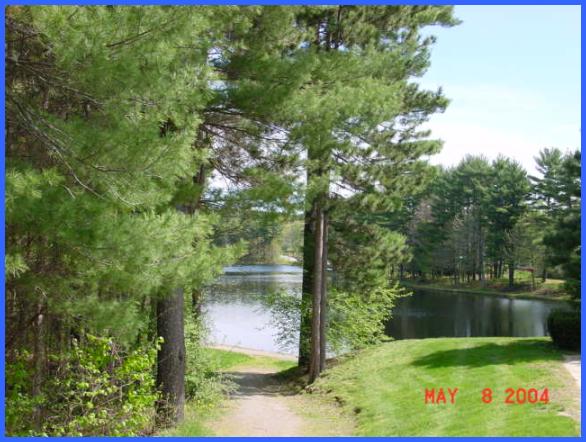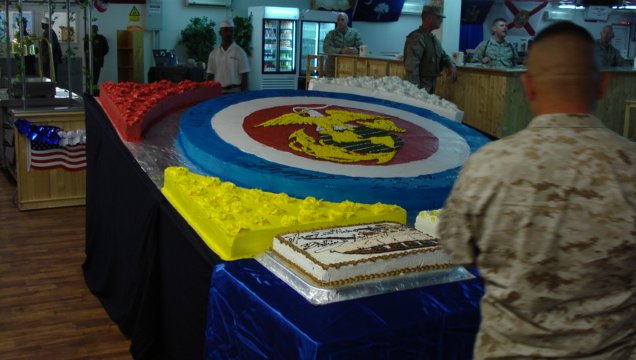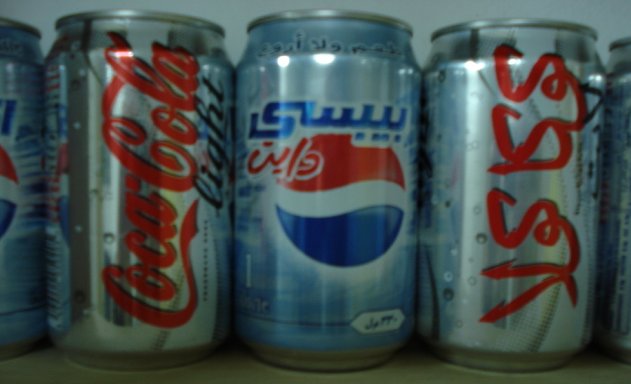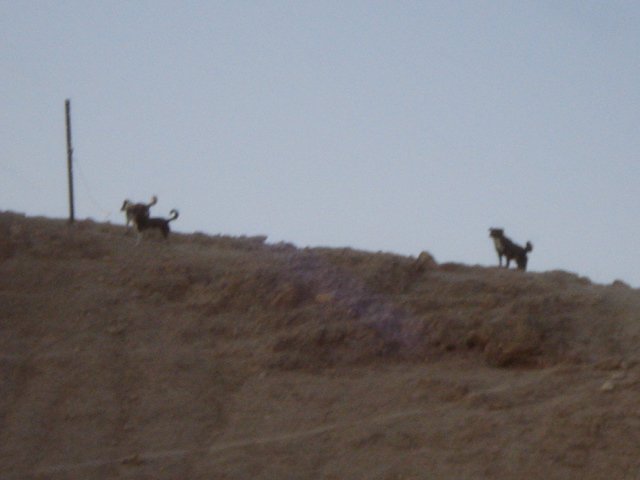
The picture shows part of a dog pack that patrols the hills near Haditha. There were about a dozen of them, but most went behind the ridge before I got my camera out. It is not related to my story below. I needed to put in a picture. I did not have any other use for this one and I wanted to pose a wild dog question that I have been thinking about. Feral dogs all over the world seem to have cury tails and are often a kind of tan-yellow color. Wolves and foxes do not have curvy tails, nor do most domestic dogs. I wonder why it is that feral dogs do. Anybody know anything about that?
As I looked out the window where the local council was going to meet, I noticed an old guy in a fine suit walking slowly across the bridge. I thought how he looked out of place. I figured he was a city council member. As he approached the guards, I got a better look. He was a sophisticated looking guy, tall with strong features and very well dressed. He looked like Oliver Wendell Holmes, Jr. with a full mustache. I noticed his shinny black shoes and impeccable dark suit. It is so dusty here; how did he keep his shoes & clothes so clean.
He was not a city council member and he was not coming for the meeting. It turns out he was ostensibly the legal owner of the building where we were meeting. He was trying to file a claim for rent and ultimate restitution, but he had been unable to complete the paperwork w/o a recent picture of his property and he has been unable to get a recent picture because of security. He waited until he saw the Marine patrol come by and then he walked from his nearby home in hopes that he could get a hearing and a picture. It worked. His nice suit and demeanor got in him past and we can get the pictures.
As I looked around the room, it clicked. This place had been a restaurant, probably a nice one. Broken bulbs gloomily festooned the now defunct garden that was now used as a big urinal. The storage room was the kitchen; we were meeting in the main dinning room. The shattered windows overlooked a beautiful bend in the Euphrates and a little park, with a defunct soccer field. I had seen all these things but not connected them.
This poor old guy was the once and & perhaps future owner of a fine restaurant and garden on some prime real estate. He was polite and spoke English. Fixing the place up looked like a lot of work, but there did not seem to be structural damage. In fact, I could not figure out how the place got so busted up in the first place. It was not battle damage, probably vandalism and looting.
It was poignant watching him furtively look around, no doubt recalling happier times, maybe dreading the work he would need to do to get the place repaired, maybe looking forward to it. He had been a prosperous man and with any luck he would be again.

